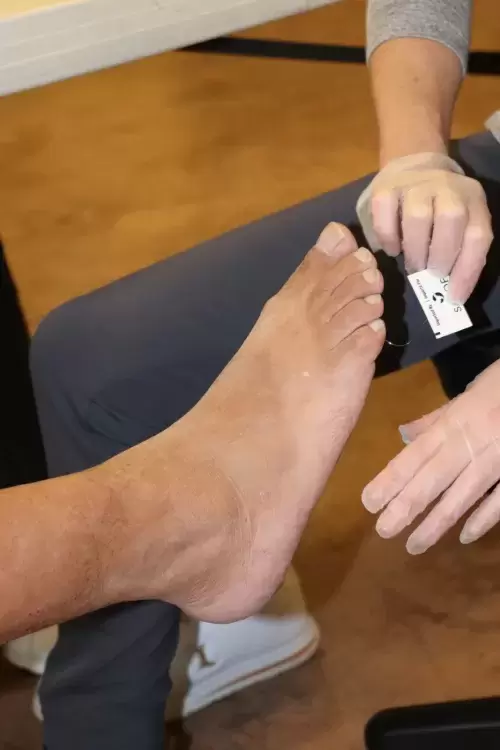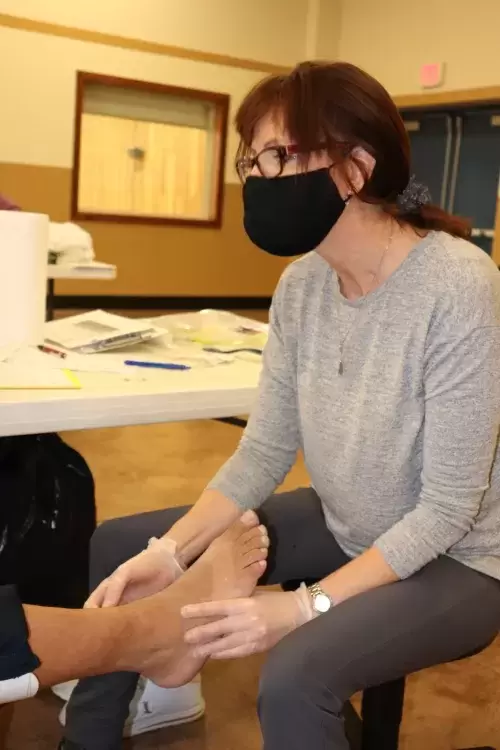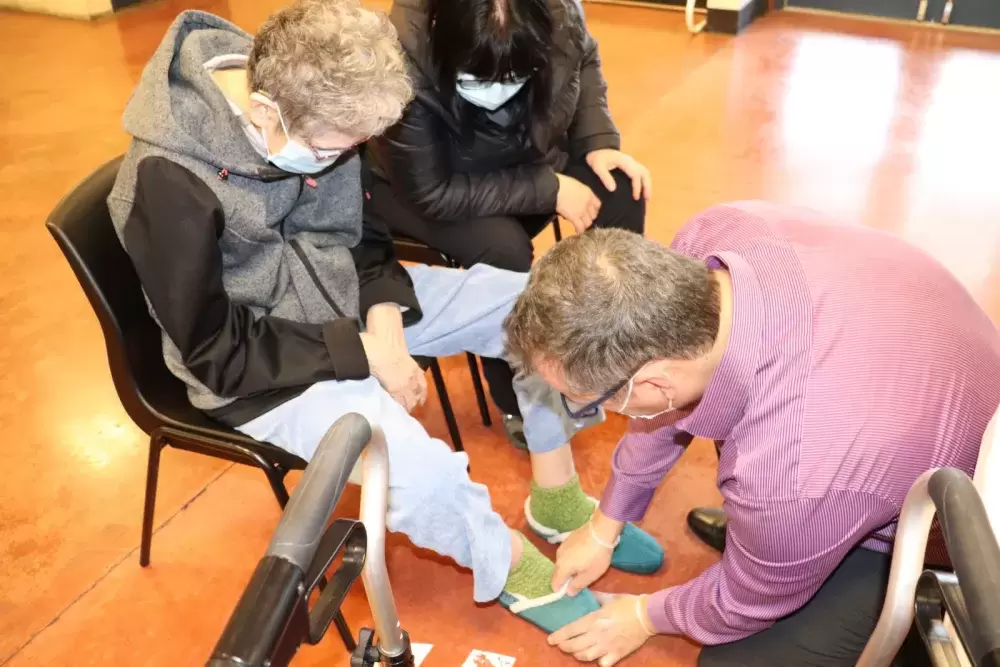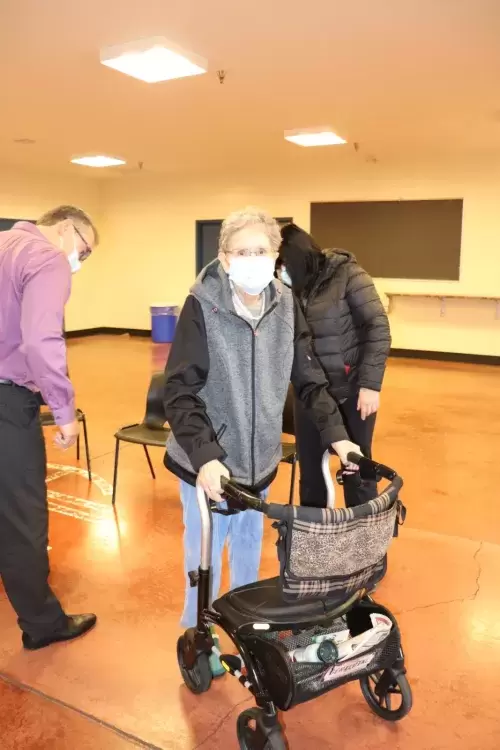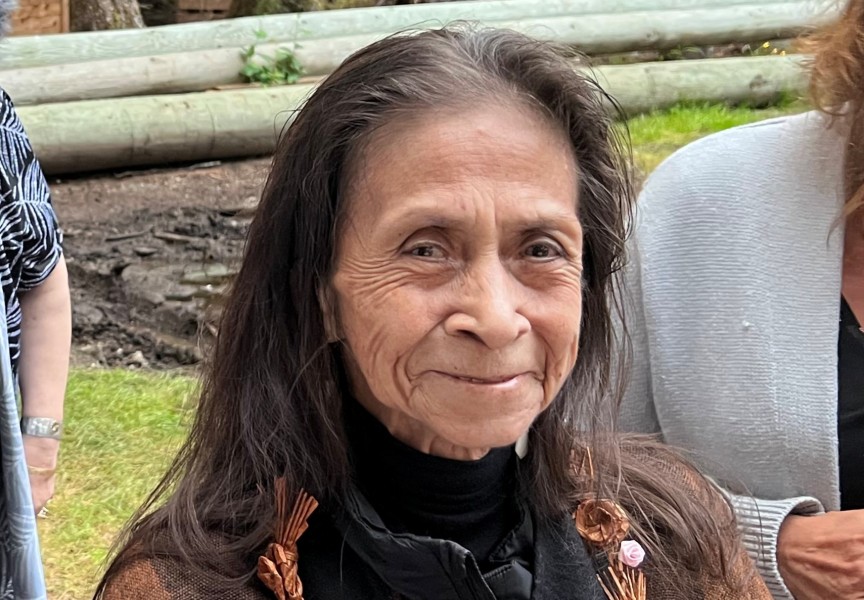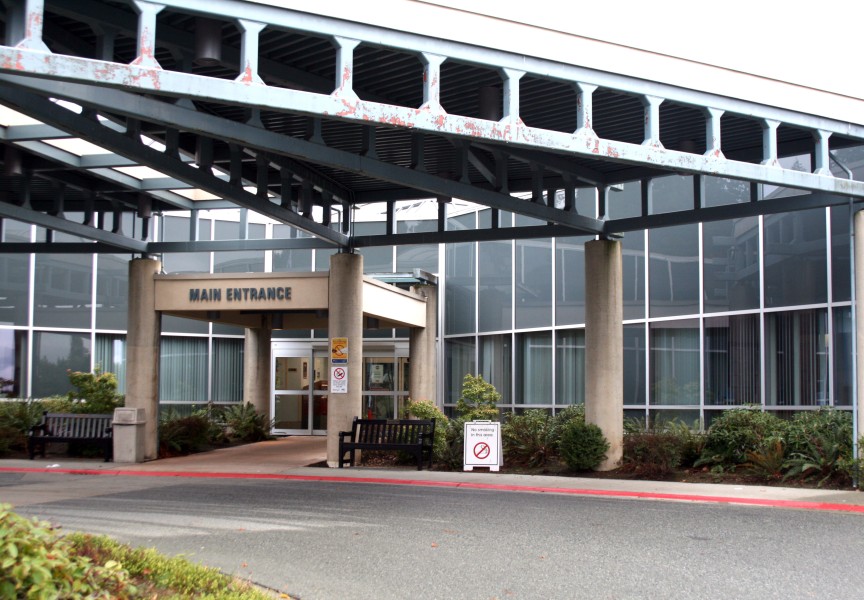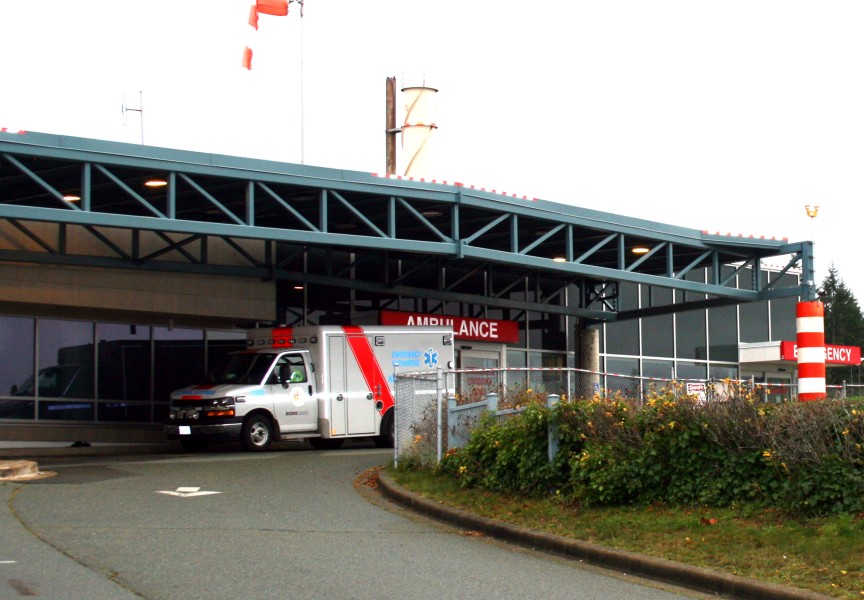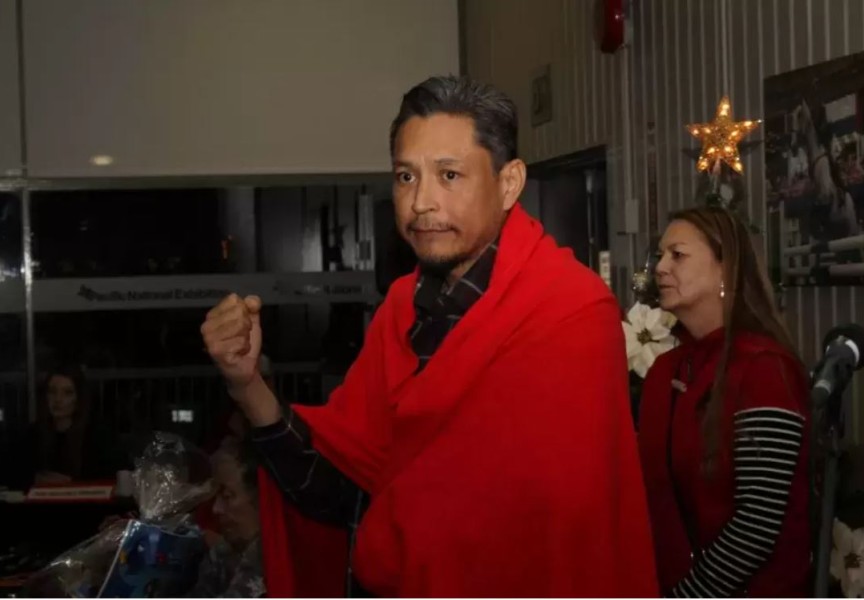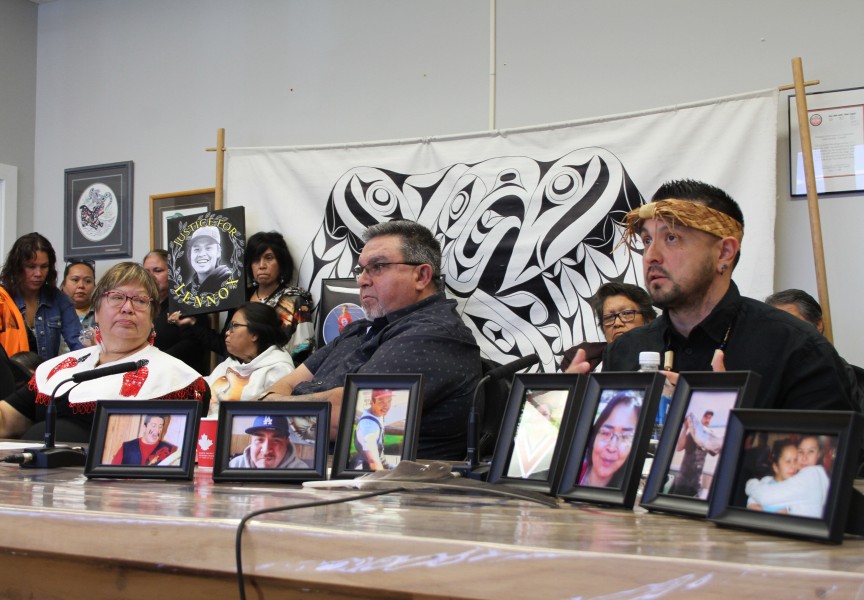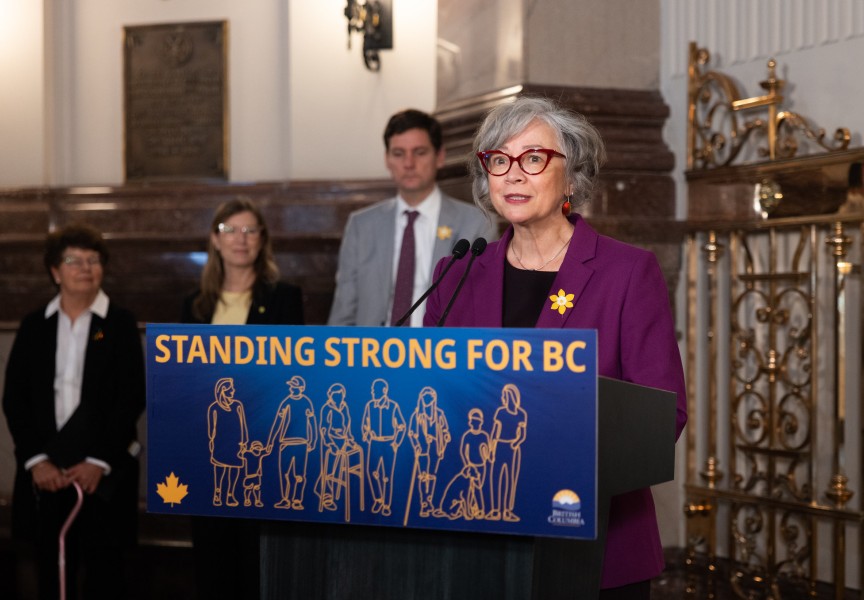Dozens of Nuu-chah-nulth people are receiving preventative foot care services closer to home, thanks to the efforts of NTC Health Promotion Worker Matilda Atleo.
With the elevated risk of Type 2 diabetes for Indigenous people in general, specialized foot care is especially important to avoid the risk of amputation and also to help keep people mobile. But there are very few professional pedorthists north of Nanaimo, according to Atleo. And with the COVID-19 pandemic, fewer people are willing to travel away from home for foot care.
Atleo has organized mobile foot clinics with Nanaimo-based OceanWalk Pedorthic. Since October 2020, Katia Langton, owner of OceanWalk Pedorthic, has traveled to Port Alberni and other outlying communities to deliver services to people needing foot care.
On Oct. 24, Katia and her team arrived at Port Alberni’s Athletic Hall for her fifth foot clinic in that city.
“We can go to different communities,” said Langton, adding that they just need someone like Matilda Atleo to facilitate the clinics.
OceanWalk Pedorthic mobile clinics have traveled to Tofino, Ahousaht, and Campbell River since 2020, serving Nuu-chah-nulth members in those areas.
Langton is a certified pedorthist in both the US and Canada. She is trained to assess and treat patients with foot problems due to diabetic neuropathy.
“I am certified in lower extremity amputation prevention and comprehensive treatment and management of the neuropathic foot,” she told Ha-Shilth-Sa.
“OceanWalk Pedorthic runs these First Nations Mobile Foot Clinics with the goal of keeping First Nations clients active, walking and mobile,” added Langton.
Clients are assessed and treated for painful foot conditions on a preventative basis to prevent little problems from becoming big.
“A painful foot condition will encourage sedentary behaviour and stop them walking and they will eventually be susceptible to lifestyle related diseases; the largest being diabetes,” Langton said, adding preventative foot clinics will elevate the health of First Nations community members and prevent chronic disease.
Diabetic and pre-diabetic patients should have their feet assessed annually to avoid neuropathy. Annual foot care allows the pedorthist to catch ulcers early and treat them to avoid amputations.
Besides foot problems associated with Type 2 diabetes, Langton also treats people with painful foot conditions caused by arthritis, bunions, plantar fasciitis, injuries and much more. These conditions are often treated with devices called orthotics that are custom made and worn inside the shoe, or with orthopaedic shoes.
While in Port Alberni, Langton was able to fit Ahousaht elder Geraldine Allwork in her new custom-made orthotics and treated members from Huu-ay-aht and Tseshaht for painful foot conditions.
“Our goal is to keep people walking,” said Langton. She pointed out that chronic foot pain, left untreated, can go “up the chain” potentially causing knee, hip and back pain.
Katia says orthotic devices and shoes are covered by the First Nations Health Authority every two years.
“We will access coverage of these devices and make recommendations for all First Nations clients. Additionally, any of the clients also on disability will be covered for orthopaedic footwear annually,” she said.
Langton says they are available to run preventative First Nations mobile foot clinics throughout B.C., but they need someone in the community to coordinate – set dates and book patients.
“And then we will show up and run the clinic,” she said.
According to Langton, a health worker in Kingcome Inlet read about the mobile foot care clinic in a Ha-Shilth-Sa edition from April 2021 and successfully coordinated a clinic there.
If any First Nations are interested in having this clinic in their community, they can reach out to Matilda Atleo at the Nuu-chah-nulth Tribal Council at 250-724-5757, or they may contact the clinic directly at 250.585.5859.

